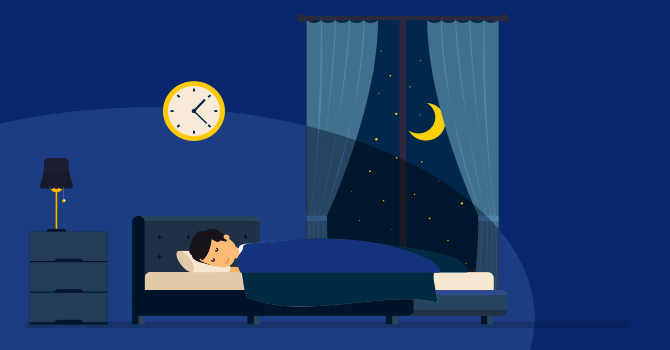If a person is unable to sleep for a reasonable amount of time at night or is frequently awoken in the night and unable to fall back asleep, they would be considered to have insomnia. Insomnia can be caused by various factors including stress, chemicals, fear, caffeine, medication, and other influences that prevent a person from getting a full night’s rest. Many people who complain of insomnia describe symptoms of feeling tired but being unable to sleep or only being able to sleep for minutes at a time.
There are several types of insomnia, including acute, chronic, and transient insomnia. Transient insomnia is short-lived and can usually resolve on its own. It may last just one night up to a couple of weeks. Acute insomnia is when someone experiences symptoms for a short period of time, typically 3 weeks to 6 months. Chronic insomnia occurs when people experience these symptoms nightly for more than a month, with recurring symptoms each evening.
One of the main causes of insomnia is sleep apnea, which involves periods of not breathing during sleep. This can lead to frequent awakenings and prevent the individual from getting a full night’s rest. Another cause is circadian rhythm sleep disorder, which can make a person feel sleepy throughout the day and prevent them from getting proper rest during normal sleeping hours.
Parasomnia encompasses various disorders such as REM disorder, sleep-walking, night terrors, nightmares, and gastroesophageal reflux disease. These disorders can cause disruptions during sleep. Additionally, individuals with illnesses such as depression or bipolar disorder can experience sleeping problems. Sometimes, the more a person tries to fall asleep, the worse the problem becomes, often leading to increased anxiety and persistent insomnia.
The treatment for insomnia depends on the specific symptoms a person exhibits. Sleeping aids, such as medications, are often used to help individuals achieve a full night’s rest. Medications commonly used for insomnia treatment include midazolam, nitrazepam, lorazepam, diazepam, and temazepam. People with depression may find relief from medications like doxepin, trazodone, and mirtazaphine. Natural remedies are also available and can be discussed with a doctor to determine the best course of action for achieving a good night’s sleep.

